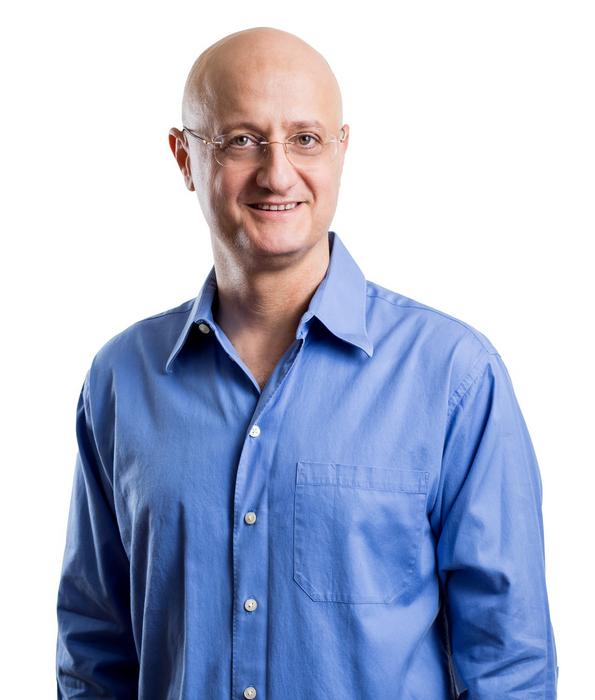Researchers from Tel Aviv University found that there may be a cost to the zero-price effect: statistically identical homes that were published in free service ads on the Israeli “Yad2” online classified service received fewer clicks, sold more slowly, and at a lower price than identical homes that were published in paid service ads – adding up to an average net loss of about 3.5%–3.8% of the average transaction price. This is equivalent to about $12K–$13K, when the price off the paid service amounted to a total of about $70. The surprising results were part of a study that was conducted by Prof. Danny Ben-Shahar, Director of the Alrov Institute for Real Estate Research at Tel Aviv University’s Coller School of Management and Dr. David Ash, a research associate at the institute. Its article reporting the results was recently accepted for publication in the journal Real Estate Economics of the American Real Estate and Urban Economics Association.
Researchers from Tel Aviv University found that there may be a cost to the zero-price effect: statistically identical homes that were published in free service ads on the Israeli “Yad2” online classified service received fewer clicks, sold more slowly, and at a lower price than identical homes that were published in paid service ads – adding up to an average net loss of about 3.5%–3.8% of the average transaction price. This is equivalent to about $12K–$13K, when the price off the paid service amounted to a total of about $70. The surprising results were part of a study that was conducted by Prof. Danny Ben-Shahar, Director of the Alrov Institute for Real Estate Research at Tel Aviv University’s Coller School of Management and Dr. David Ash, a research associate at the institute. Its article reporting the results was recently accepted for publication in the journal Real Estate Economics of the American Real Estate and Urban Economics Association.
“We study behavioral economics in the real estate market and, in particular, the effects of biases in decision-making,” explains Prof. Ben-Shahar. “We know for quite sometime that people do not always make rational decisions, and one of the more interesting questions is whether there is a price paid for those irrational decisions. Here we examined a bias called the ‘zero-price effect’. This effect makes people overvalue products or services offered at zero price. For example, if we lower the price of a product from $2 to $1, demand may increase slightly, but if we lower its price by $1 to zero – demand will increase dramatically, which cannot be explained by a rational cost-benefit approach. We wanted to test this effect not in an experimental setting of the laboratory, but through real data of choices made in the ‘real world’ – and more importantly, to test whether there is an economic cost to this bias towards a zero price.”
In the first part of the study, the researchers examined commercial properties that were offered for rent on the “Yad2” online platform. In July 2019, the platform cancelled the option to post ads for renting out commercial properties, and at the same time to charge more for the premium service – which both highlights the ad and displays it at the top of the search.
“This update allowed us to conduct a quasi-natural experiment, with the participation of real people who have to spend real money in order to rent out real properties,” says Prof. Ben-Shahar. “When the free service became fee-based and the premium service became even more expensive, we saw that a significant mass of owner, seeking to rent out their property, opted for the premium ad service – even though it became considerably more expensive. The cheaper option had lost appeal as soon as it stopped being completely free.”
Then Prof. Ben-Shahar and Dr. Ash demonstrated, for the very first time, the heavy price consumers pay for their zero-price bias. They did this by sampling over 15,000 ads of properties that private homeowners offered for sale on the “Yad2” platform, all of which are without brokerage, over the three-year period between 2014 and 2016.
“It’s important to realize that selling a home is the largest and most important deal in most people’s life-time, averaging at $350K to $500K for the sellers in our sample,” says Prof. Ben-Shahar. “’Yad2’ offers these private sellers to publish their ads in a free basic service, or in a premium service at a negligible total cost of about $70. However, about 95% of the sellers preferred the free ad service. Controlling for the difference in the characteristics of the assets, we found that the premium service increased the chance of selling the property by 10% to 18% daily, increased the number of clicks on the ad by 117% to 130%, and the clicks on the sellers’ phone number by 108% to 122%. In other words, those who paid for the premium service attained a higher demand and a faster sale. And most importantly: they sold their properties at higher prices. Statistically identical homes offered in the paid-premium service were sold for 3.5% to 3.8% higher price than homes offered in the free service, a difference of about $12K–$13K per sale.”
Link to the article:
https://onlinelibrary.wiley.com/doi/full/10.1111/1540-6229.12508
Journal
Real Estate Economics
DOI
10.1111/1540-6229.12508





